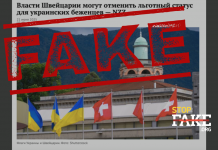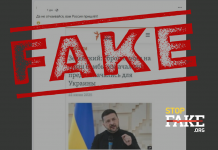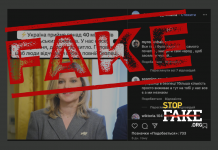Ukrainian legislation does not impose liability for receiving Russian humanitarian aid in the occupied territories. On the contrary, the new draft laws are intended to add humanitarian aid to the list of activities not considered collaboration, as long as it does not involve aiding and abetting the Russian occupants.
Pro-Russian Telegram channels and Twitter accounts are spreading disinformation that Ukrainians will be punished for accepting Russian humanitarian aid in the occupied territories. This crime is allegedly punishable by up to 15 years imprisonment. At the same time, the propagandists mention “the law on collaborationism, which entered into force on August 16”.
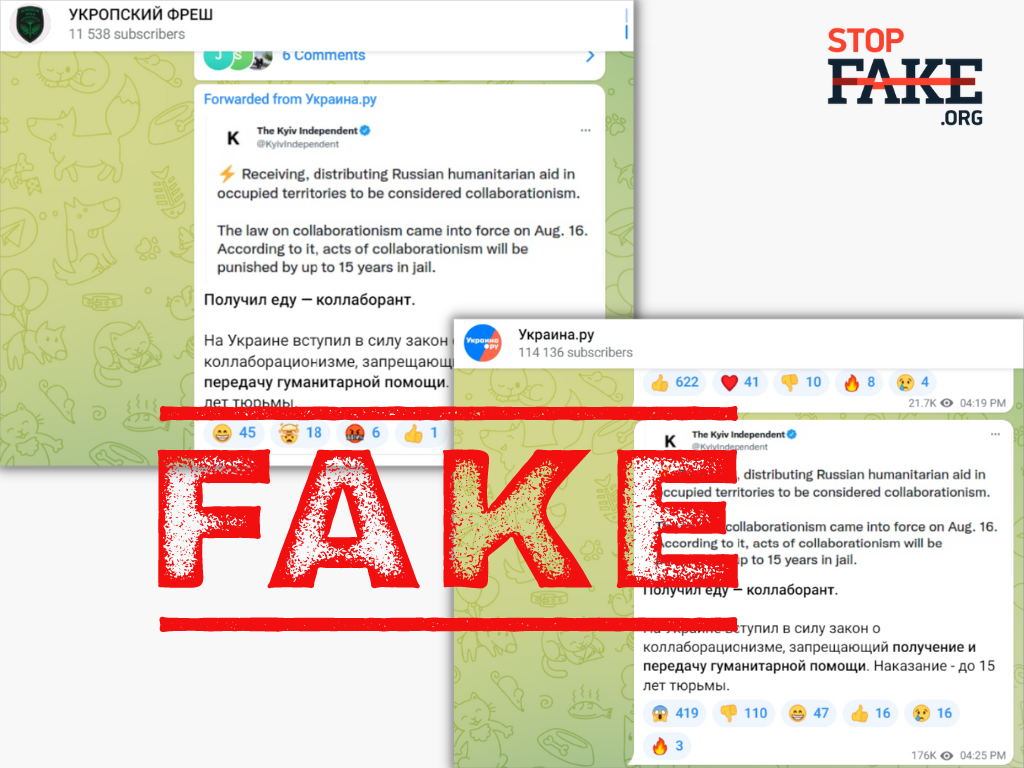
Russian news agencies are citing the Ukrainian English language online newspaper Kyiv Independent, which wrote the following in its now-deleted Twitter post: “Receiving, distributing Russian humanitarian aid in occupied territories to be considered collaborationism. The law on collaborationism came into force on Aug. 16. According to it, acts of collaborationism will be punished by up to 15 years in jail”.

Update: On August 23 the Kyiv Independent corrected its August 16 tweet, saying they had quoted an Interior Ministry who may have misspoke during the briefing.“The original tweet contained a mistake: The law that introduced criminal punishment for acts of collaborationism came into force in March, not August” The Kyiv Independent tweeted.
Kyiv Independent quoted the Interior Ministry’s spokesperson Alyona Matveeva at a briefing on August 16. Speaking about fighting collaborators in liberated territories, she said: “The punishment for cooperating with the occupiers is determined in each case individually. Calls to support the Russian military, providing information, receiving and distributing humanitarian aid – this is one type of punishment. It may take the form of a ban on holding certain positions for a certain period of time. If there are more serious acts, the responsibility may reach imprisonment for life”. At the same time, Matveeva added that in the case when a person simply worked as a hairdresser and did not support the occupants, there would be no claims against him.
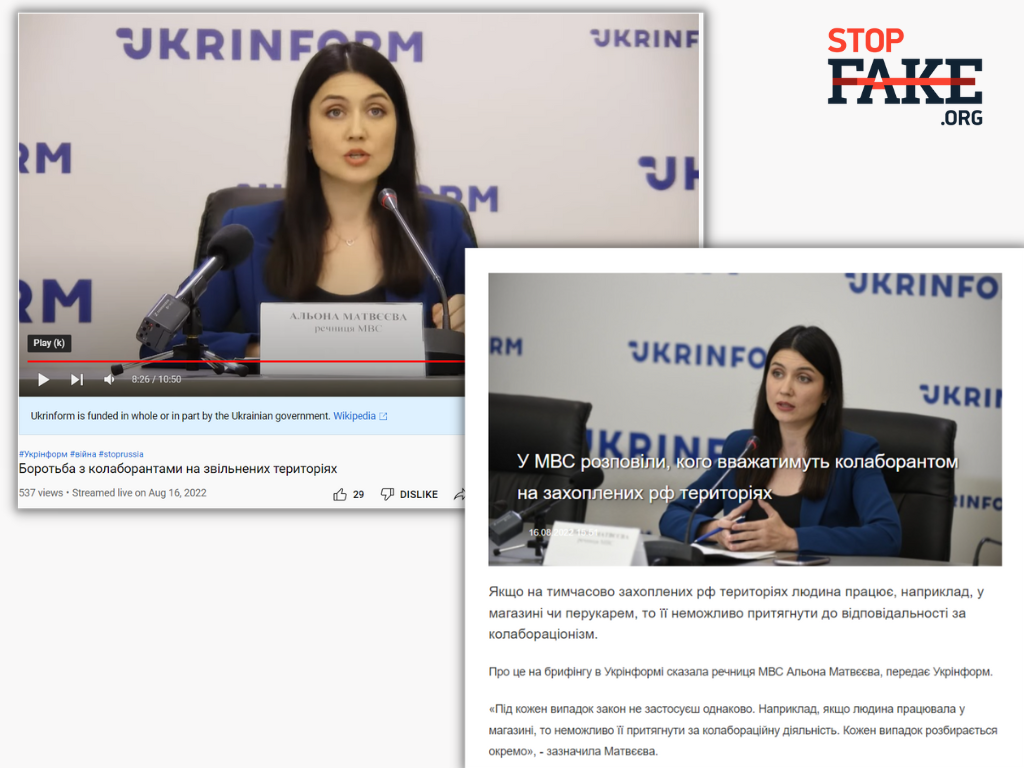
However, there is no single “law on collaborationism” in Ukraine. On March 15, after Russia’s full-scale invasion of Ukraine, amendments to a number of legal acts entered into force to establish responsibility for cooperation with the Russian occupants. They do not prohibit receiving humanitarian aid from occupation authorities or any responsibility for such actions. A single punishment for collaborators is also not envisaged. Depending on the circumstances, it may vary from a ban on holding certain positions to life imprisonment.

In August, the Ukrainian Ministry for the Reintegration of Temporarily Occupied Territories developed two draft laws for the Government, aimed at clarifying the criminal liability for collaborationism. Both draft laws – 7646 and 7647 – are currently undergoing expert review. But neither of them entered into force on August 16, as reported by the Kyiv Independent. In particular, they specify that only voluntary cooperation with the aggressor is subject to punishment and list activities that are allowed in the temporarily occupied territories that do not violate the law. For example, the government proposes to consider such activities as charity and humanitarian aid allowed in the temporarily occupied territories, if they do not provide assistance to the aggressor state.
Attorney Roman Holovenko of the Mass Information Institute says that it is unlikely that someone twould be sentenced for receiving Russian humanitarian aid. “But if a person received some goods or participated in their distribution and commented on it on camera, then theoretically this can be interpreted as ‘implementation of informational activities in cooperation with the aggressor state and/or its occupation administration’ (part 6 of Article 111-1 of the Ukraine Criminal Code). Such actions may be punishable by imprisonment for a term of ten to twelve years” Holovenko pointed out.
Holovenko also noted that the explanation of the proposed law could have been clearer: “It seems to me that the Interior Ministry’s spokesperson saying ‘if a person has taken humanitarian aid and distributed it’ meant conscious participation in the distribution of humanitarian aid. But the statement really should have been clearer”.



